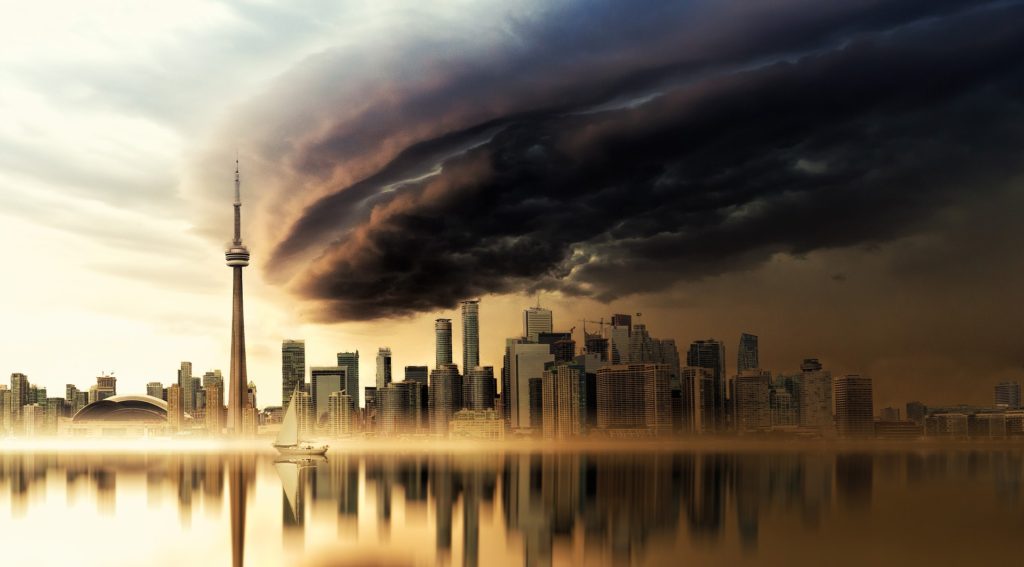This is one of the most common questions authors receive in interviews and lecture Q and As. Have you ever wondered where “the greats” get their ideas? Or perhaps you are having a creative slump and are desperately searching for your next big story. So how does one come up with ideas?
I can only speak for myself and Stephen King when I say: WHAT IF? Ever since I was a child, almost every story I have written stemmed from asking myself this question. Imagine my absolute delight when I read On Writing by Stephen King for the first time (many years ago) and discovered that he often employs the same technique.
“The most interesting situations can usually be expressed as a What-if question.”
– Stephen King, On Writing
Not only is this an almost guaranteed way to come up with at least one viable concept, but it’s incredibly easy. You start with a singular moment or person or object, then spin it into any number of stories or sub-plots within a single story. And before you start saying, “yeah but that won’t work in MY situation”, this can work for any person and for any genre. Here are some of the ways I come up with my story plots and concepts.
#1 – Writing Prompts
Let’s start with the most obvious. I’m sure you are very aware of the extensive number of websites providing free writing prompts. What I challenge you to do is to look at them in a different light than you have before. Start by asking WHAT IF? Are you a horror writer, so you only search for horror prompts? WHAT IF you look up Romance instead? Man and Woman fall in love, then Woman gets an incurable disease and dies. Pretty well-known plot point, right?
WHAT IF the Man, distraught by the death of his love, slowly sinks into a state of psychosis? WHAT IF he starts seeing things and starts to wonder if he’s going crazy or if the Woman is haunting him? WHAT IF because of that, we start finding out sordid details of his past? And so on and so on.
The concept is gloriously simple – just one WHAT IF followed by another and another until you are suddenly cascading into a brainstorming/writing spree. This is part of what I call the “The Snowball Effect” (my guest blog post on this topic will debut on Well-Storied on May 27, 2019). Your final plot or scene may in no way resemble what you started with, and that’s ok! WHAT IF just serves to get those creative synapses firing.
“The important thing is not to stop questioning.”
– Albert Einstein
Please don’t underestimate writing contests either. These serve as perfectly good prompts for any genre (using the technique above), whether the contest is expired or not. New contests are always popping up, so even if you have no desire to enter the actual contest, it can still be an excellent catalyst.
For quick prompts, you can do a simple search engine check, or hit up your favorite blogs and writing websites. Pinterest is also a great place to try (plus you can save the ideas easily for future use). I have a board dedicated to writing prompts that you can find HERE.
Pictures and images are also excellent prompts – start by trying to tell the story of what is going on in the image and run with it from there. I post contest links, both written and picture prompts, quotes and more in my Facebook group regularly (example below), so come join us!
When you were nine years old, your best friend disappeared while you were all playing hide-and-seek. The police never turned up any leads. Today is your 30th birthday and you just received a card that could only have come from your missing friend.
#2 – On The Road
How much time do you spend in some type of vehicle? Commutes to and from work or school, for business travel, for vacation, etc.? The time can really add up, so make more use of it! (Just remember to pay attention to the road above all else if you are the driver – PSA box is now checked off my list.)
- What is up with the paint job on that car – is that on purpose?
- The driver behind you is acting strangely…. (starting with a similar thought helped me to come up with my story The Lady In The Trunk)
- Bumper stickers can really tell you a lot about a person….
- Names of businesses and license plates (I saw a license plate that started with Ila, then a van drove by for Patterson’s something or another. My character Ila Patterson was born from this. Though her name later changed for various reasons, I still got a short story out of it that is in my first Amazon collection, along with The Lady In The Trunk.)
- What nefarious thing could be in that trash bag on the side of the road, or in the waist-high grass overtaking the median? Maybe a dead body….
- The roads and highways are littered with billboards and electronic signs. What if one day the sign’s message issued a threat instead of a warning?
- Stuck in traffic? What could happen that would change your life in an instant? Maybe giant creatures appearing or a massive sinkhole opens up or an alien invasion or the sun disappears or…….
- Songs on the radio sure do tell a great story, but what if the lyrics were changed just a little?

#3 – At Work or School
- Did your co-worker or classmate say or do something incredibly stupid yet again? Did someone maybe get a little out of control at the office/class party?
- Boring posters and message boards you regularly ignore could hold a wealth of ideas. That workers comp poster could lead to some interesting stories….
- Does a teacher lecture or corporate meeting have you practically comatose? Wouldn’t it be great if they just stopped talking? WHAT IF they suddenly collapsed and now everyone in the room is a suspect?
- Is the water cooler or snack machine secretly out to get you?
- Maybe that mom sitting by the window gave her child the kid’s meal she ordered, but you put the wrong toy in there. Her kid starts screaming at the top of his lungs and the mom was clearly already at the end of her rope when she walked in. WHAT IF this was her breaking point – how would she react?

#4 – Personal Life
- What movies or TV shows left you dissatisfied? WHAT IF the episode or series or movie had ended differently….
- News stories, whether you get them from the newspaper, online, or news networks, are a plethora of stories waiting to be twisted to suit your writing needs!
- People-watching is as popular as ever and serves as a great way to not only get story ideas by asking WHAT IF, but also provides visuals that you can use later when describing your character’s physical attributes.
- Nature and Science documentaries open doors to crazy creatures and freaky phenomena that are often outlandish enough to be used as is, but combining some of these ideas into a single plot or scene can be even better.

- Tired of watching happy-go-lucky cartoon programming with your children all day? Do you groan every time they ask you to read them that same boring bedtime story? WHAT IF that ending was not so full of sunshine and rainbows? Or WHAT IF it was retold as an adult story – what would change?
- If you’re spending your weekend doing mind-numbing chores and errands, what could make these things easier? A fancy invention? Or maybe no one does these things in the future anymore – but why not?
- Just looking for some character names or good names for plants or animals in your next work? Honestly, I have come up with plenty by looking at word searches. Random letter combinations that appear can make for excellent names
- Social Media! What about all that time you spend scrolling through Tweets, Pins, Facebook feeds and Instagram posts? How many of these can you take and transform for either character building or plot development?
- Texting typos have given me some doozies. There are a ton of these fail examples to be found online if you aren’t into texting yourself. Not long ago I tried to text my son that we were “turning into driveway” so he could unlock the door. Instead, it came out as “turning into Dubai”. Cue the potential espionage story my brain skittered off to. I won’t even go into my phone changing “mouse traps” into “morse tarfoya”…..

#5 – Public Domain
In case you are unsure of what this is, the dictionary defines it as: “the state of belonging or being available to the public as a whole, and therefore not subject to copyright.”
There are many websites out there with public domain lists. You can surf through the lists of stories, films and artwork with expired copyrights to get ideas for your own stories. Even if your final work ends up being so far removed from the original that copyright would not be an issue anyway, it’s still a valuable launching point.
This is especially exciting now in 2019. To make a long story short, a 20 year freeze was placed on releasing copyrights in the late 90s. Since then, nothing published after 1922 that was copyrighted would become part of the public domain. But as of Jan. 1, 2019, the hiatus ended and the copyrights of 1923 are now available.
PUBLIC DOMAIN DAY 2019 WELCOMES 1923!
You may think 1923 was too long ago to hold any interest for you, but I urge you to check out the list before dismissing it. There are some interesting releases available from that year including (but not limited to) titles by Agatha Christie, Robert Frost, Ernest Hemingway, H.P. Lovecraft, H.G. Wells, and Arthur Conan Doyle.
Don’t stop there! Look for works that are set to be available to the public domain in the next few years so that as soon as they are released, you already have a story close to or ready for publication. Do be cautious putting extensive work into this though, as another freeze could go into effect and put a halt to your plans.

These are by no means the only ways you can get ideas, but maybe they can give you a place to start or a way to get over a hump. Hopefully you’ve started thinking of your surroundings in a different way, even if you have used some of these tactics before.
Keep your eyes peeled and your mind open, no matter what situation you find yourself in. Let your imagination run free! If it needs a little push to get the motor running, just ask yourself, “WHAT IF?”

Do you have other strategies for brainstorming ideas? Let me know in the comments below!











